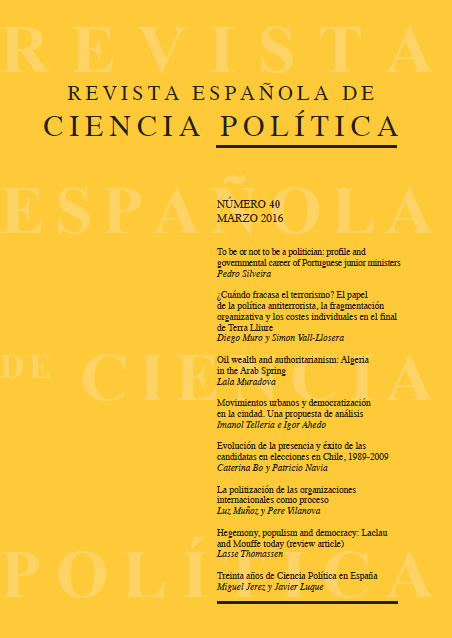When does terrorism fail? The role of counter-terrorism, organizational fragmentation and individual costs in the end of Terra Lliure
Keywords:
terrorism, counter-terrorism, political violence, Terra Lliure, disengagementAbstract
When do terrorist campaigns end? Why do terrorist groups decline? What are the causes of terrorist disbandment? What are the explanatory factors that account for individual and collective disengagement? This paper analyzes the case of Terra Lliure, a Catalan terrorist group active between 1979 and 1995, in order to identify the independent variables that determine the success or failure of terrorist groups. In accordance to the literature on political violence, the paper develops a multi-level argument that distinguishes three explanatory variables: (1) counter-terrorism; (2) organizational dynamics; and (3) individual factors. The article concludes that a counter-terrorist policy (macro level) based on increasing the cost of participation in an insurgent group is most successful when it coincides with organizational fragmentation (meso level) and individual burnout (micro level).
Downloads
Downloads
Published
How to Cite
Issue
Section
License
Copyright (c) 2016 Diego Muro Ruiz

This work is licensed under a Creative Commons Attribution-NonCommercial-NoDerivatives 4.0 International License.






